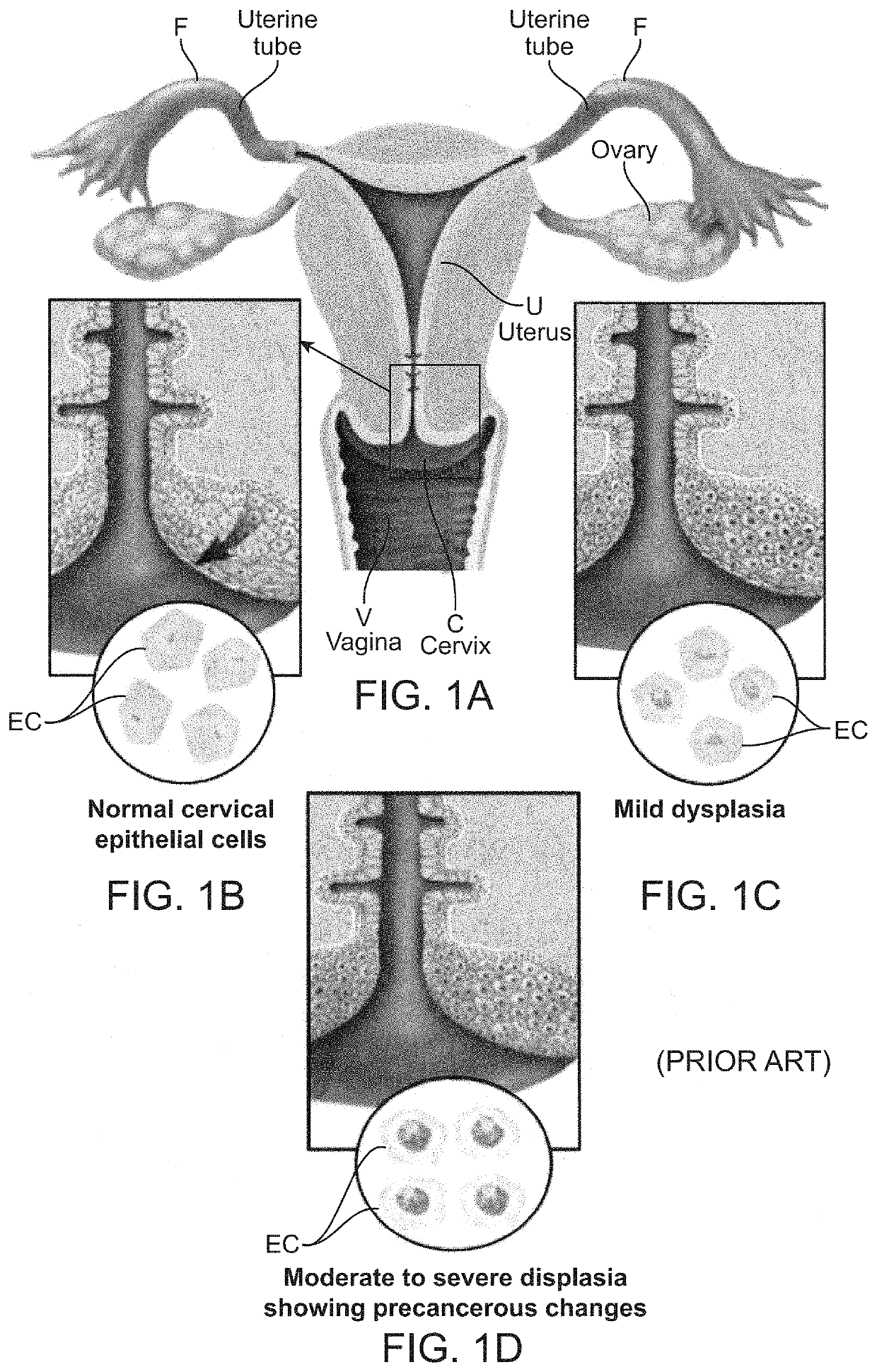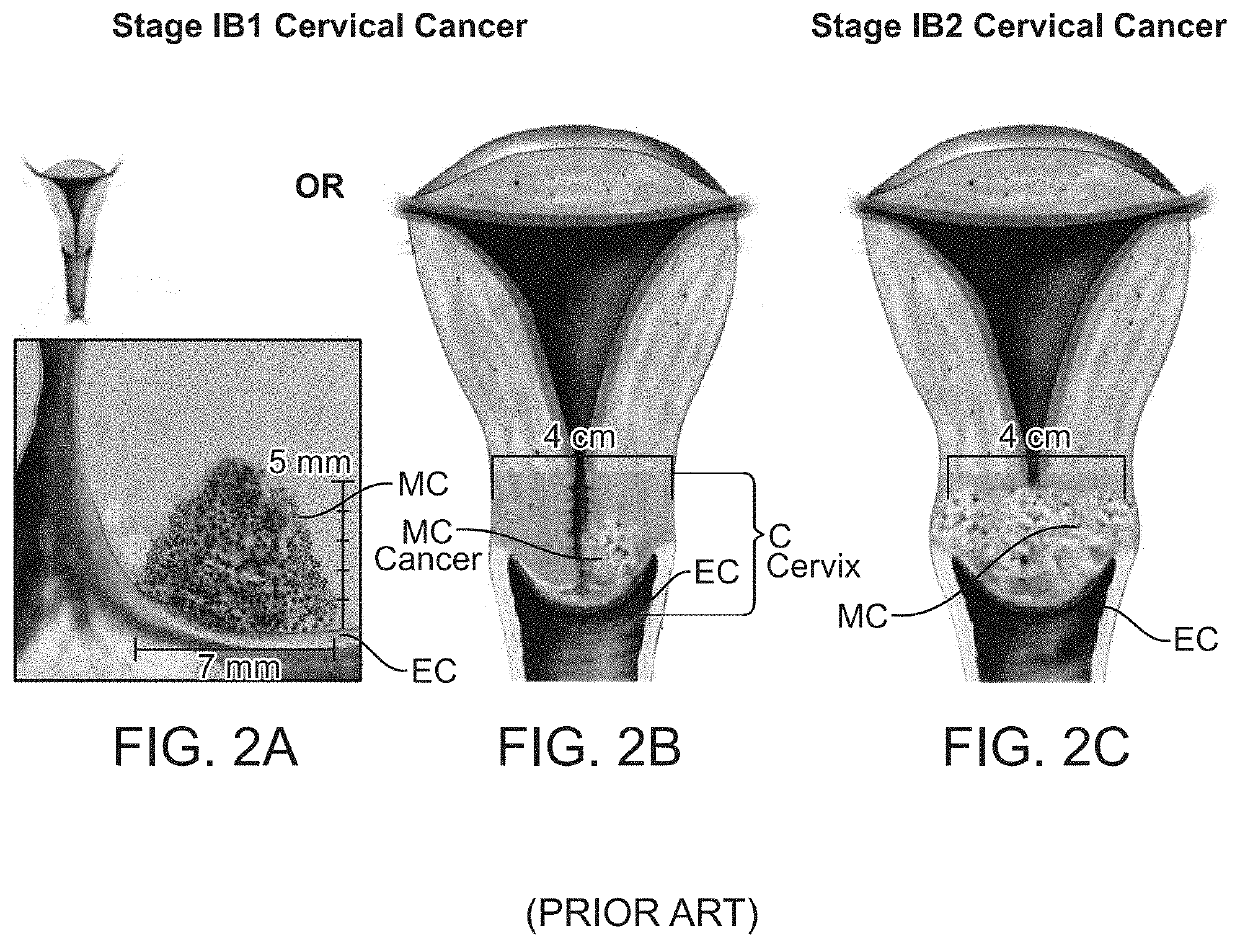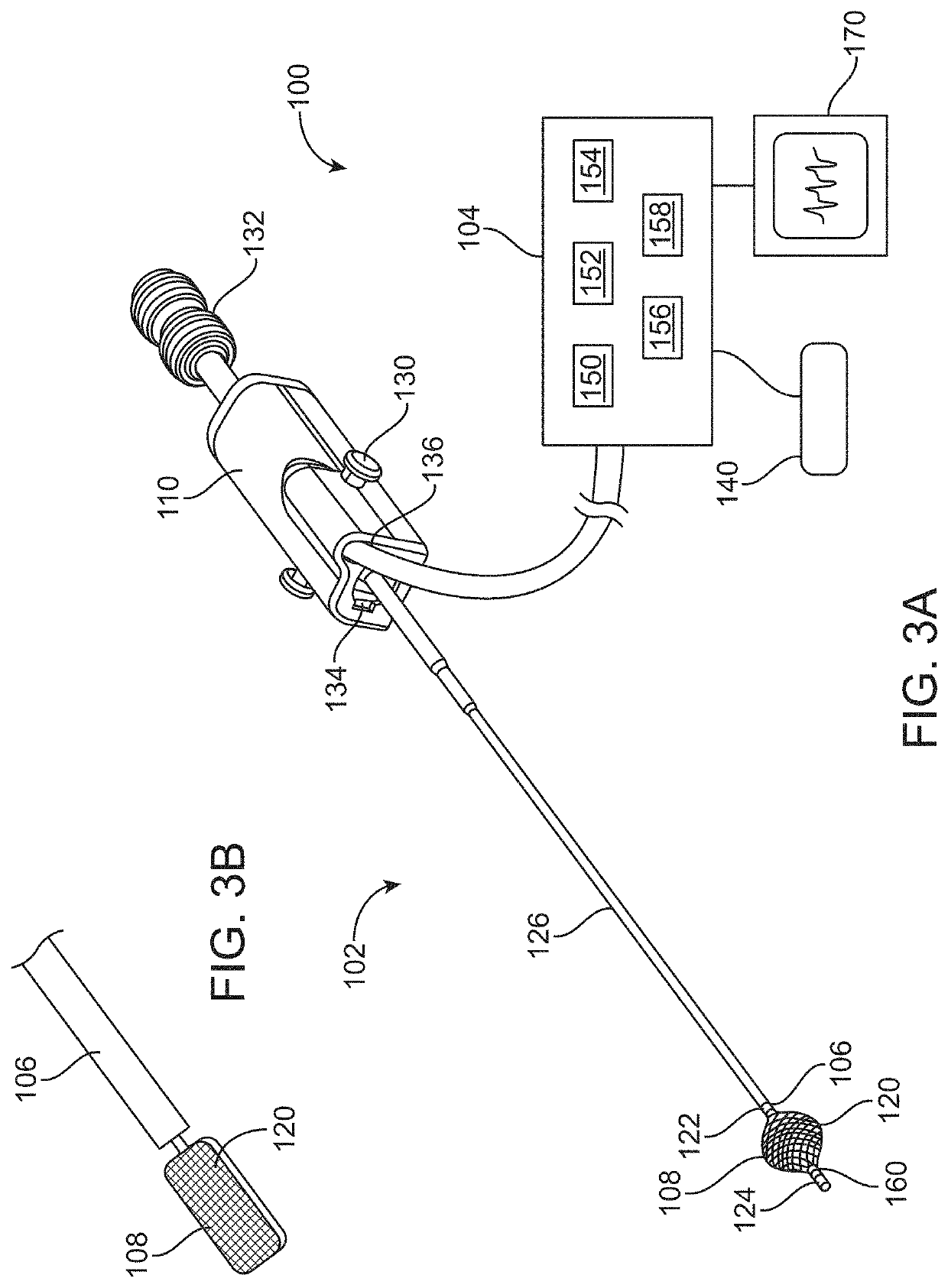Treatment of the reproductive tract with pulsed electric fields
a pulsed electric field and treatment field technology, applied in the field of treatment of the reproductive tract with pulsed electric fields, can solve the problems of affecting the epithelial cell lining, affecting the elasticity of the tissue, and posing occlusion risks of the cervical lumen, so as to increase the lubricity and blood flow. the effect o
- Summary
- Abstract
- Description
- Claims
- Application Information
AI Technical Summary
Benefits of technology
Problems solved by technology
Method used
Image
Examples
example embodiment
Overview
[0144]Typically, the electrode or array of electrodes that deliver the PEFs are disposed on a therapeutic energy delivery catheter configured to be advanced to the target tissue site. Access to the various portions of the reproductive tract are typically accessed through the vagina V. FIG. 3A illustrates a basic embodiment of a therapeutic energy delivery catheter 102. In this embodiment, the catheter 102 has an elongate shaft 106 with at least one energy delivery body 108 near its distal end and a handle 110 at its proximal end. The catheter 102 is connectable to a generator 104 as part of a treatment system 100. Connection of the catheter 102 to the generator 104 provides electrical energy to the energy delivery body 108, among other features. In this embodiment, the energy delivery body 108 includes a plurality of wires or ribbons 120, constrained by a proximal end constraint 122 and a distal end constraint 124, and forms a spiral-shaped basket serving as an electrode. In...
example treatments
[0290]As mentioned previously, the devices, systems and methods described herein are provided to treat damaged, diseased, abnormal, obstructive, cancerous or undesired tissue by delivering specialized pulsed electric field (PEF) energy to target tissue areas. Such therapies may be used on their own wherein the undesired cells are destroyed, eliminated, killed, removed, etc., while maintaining non-cellular elements, such as collagen, elastin, and matrix proteins. These non-cellular elements maintain the structure of the tissue allowing for and encouraging normative cellular regeneration. Therefore, the integrity and mechanical properties of the tissue, and any nearby luminal structures, are maintained while abnormal or diseased cells and tissues are sufficiently eliminated. In such instances, the therapy may resolve the issue in a single treatment or may involve follow up treatments.
[0291]However, in some instances, the medical issue involves a variety of treatment options, of which ...
PUM
 Login to View More
Login to View More Abstract
Description
Claims
Application Information
 Login to View More
Login to View More - R&D
- Intellectual Property
- Life Sciences
- Materials
- Tech Scout
- Unparalleled Data Quality
- Higher Quality Content
- 60% Fewer Hallucinations
Browse by: Latest US Patents, China's latest patents, Technical Efficacy Thesaurus, Application Domain, Technology Topic, Popular Technical Reports.
© 2025 PatSnap. All rights reserved.Legal|Privacy policy|Modern Slavery Act Transparency Statement|Sitemap|About US| Contact US: help@patsnap.com



